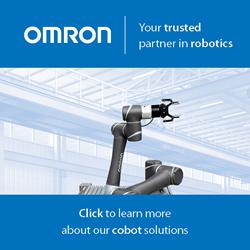International Federation of Robotics: France Outperforms Britain as Robots Transform Car Industry
The number of robots installed by the French car industry rose 22 percent to 1,400 units – compared with 700 units in the UK (+ 7 percent). The automotive sector is one of the main driving forces modernizing the French economy: with a robot density of 940 units per 10,000 workers, France currently ranks 2nd within the European Union - the UK ranks 10th with 606 units. These are the latest results of the World Robotics Report 2016 published by the International Federation of Robotics (IFR).
FRANKFURT, Germany--(BUSINESS WIRE)--The number of robots installed by the French car industry rose 22 percent to 1,400 units - compared with 700 units in the UK (+ 7 percent). The automotive sector is one of the main driving forces modernizing the French economy: with a robot density of 940 units per 10,000 workers, France currently ranks 2nd within the European Union - the UK ranks 10th with 606 units. These are the latest results of the World Robotics Report 2016 published by the International Federation of Robotics (IFR).
In France, investment in machinery and equipment are accelerating at a faster pace than the overall economy. The frontrunners here are the dynamic showcase industries, such as automotive: annual robot sales to the automotive industry as a whole increased by an average of 7 percent per year between 2010 and 2015. During the same period, the motor vehicle sector ordered on average 6 percent more robots per year and the demand from automotive parts suppliers increased by 9 percent. Since 2010, governmental initiatives to strengthen production in France have resulted in significant investments by the automotive industry. The two French automotive suppliers, PSA and Renault, will further invest in new car models, energy efficient cars, common platforms and also modernize their factories.
It is not unfair to assume that the decision to leave the EU will influence investment decisions by foreign car companies on production sites in the UK. For example, Japanese auto makers such as Toyota, Nissan and Honda export more than three quarters of their vehicles built in Britain, and most of these exports go to other European countries. Were they to have to pay duty on the shipments of goods, they might decide to move out of the UK. We assume, however, that the UK government will develop regulations and supporting measures to avoid this. In any case, there are currently frequent announcements on investment plans concerning capacity expansions and modernization by foreign and local automotive companies. Investments in the general industry sector should also gain momentum.
Full press release and graphics for download
Please find the full text and IFR graphics for download here: https://ifr.org/ifr-press-releases/
About the IFR - The International Federation of Robotics: www.ifr.org
Featured Product

